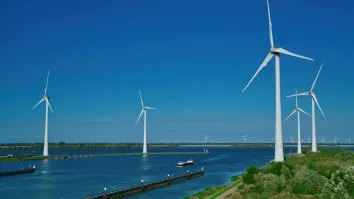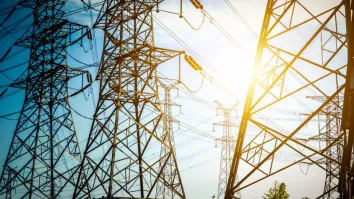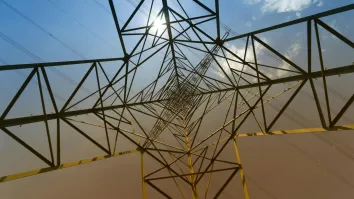
Carbon market for Asia-Pacific region pushed
Coal would likely remain a major power source amidst rising demand, OPIS says.
The Asia-Pacific region should set up its own carbon market as a proven mechanism to reach decarbonization and climate goals, whilst presenting opportunities for market participants across the region.
James Stevenson, executive director for Coal, Metals and Mining at the Oil Price Information Service (OPIS), said countries in the region are doing enough in the shift to renewable energy, but coal would likely remain a major power source amidst rising demand.
Maryland-based OPIS, a Dow Jones company, provides information used for commercial contracts and trade settlement related to petroleum, gasoline, diesel, ethanol, biodiesel, natural gas, petrochemicals and other fuels.
A carbon market allows companies and people to buy and sell carbon credits, which are like permits that let buyers emit a certain amount of carbon dioxide.
Nearly half of the region’s energy supply in 2022 came from coal, followed by oil at 23%, according to data from the International Energy Agency.
The region accounted for 48% of global emissions that year, reducing its carbon intensity by 2.8% and falling short of the 17.2% required to limit global warming to 1.5°C, PwC said.
Artificial intelligence (AI) could play a key role in helping predict energy demand to help countries work on energy security and decarbonisation, Stevenson told Asian Power. Data could help plan future grids and power plants to meet demand, he added.
Here is the rest of the interview.
What slowed the region’s carbon intensity reduction?
It obviously uses more coal than other regions around the world, and that makes it carbon intensive. I think the practical reality is that power markets outside of North America and Europe, where you have cheap natural gas, are going to remain heavily dependent on coal. And that's a reality given rising electricity demand and the available fuels in the region.
Are energy security efforts enough amidst the push for cleaner sources?
I would rate energy security efforts very high. I think the Asia-Pacific region understands that it needs to get a lot of electricity from coal, and that's just a practical reality.
A number of countries have renewable energy targets and things like that, and I think those are being adhered to. But I think there's a recognition that the first priority for electricity providers and electricity regulators is to ensure reliable electricity. So decarbonisation work is being done. I think probably every country in the region is in alignment here. It won't happen at the cost of electricity availability.
How can clean energy solutions help the region achieve net-zero goals?
There are policies in place. There are heavily built programs for wind and solar in particular. There's building of combined-cycle natural gas units which are less emission-intensive than coal, at least in theory, and I think there's also a recognition that this is a process that will take a few decades.
One of the challenges in the Asia-Pacific region is there's no regional carbon market or anything like that, like what you have in the European Union. So it really is down to individual countries with their own individual policies and their own carbon neutrality goals.
How will the emergence of regional energy grids enhance energy security and accelerate decarbonisation?
For decarbonization, we need regional approaches. It's one thing for Japan or Korea to have carbon taxes. China has a carbon market. What I think is probably the best thing for the region would be if there was some sort of a regional carbon market, or ideally a global carbon market, but this is something that's very, very difficult to agree upon and, as yet, it feels like it's still a fair way away.
How can real-time data analytics, predictive models, and AI-driven insights help the region manage energy resources, cut waste, and drive the shift to sustainable energy?
AI will be a tremendous benefit because the hardest thing in all of this is predicting the future. Will power demand in Malaysia grow 4% or will it grow 6%? Market regulators and operators need to have some sort of a good understanding of future demand in order to set up electric grids that are both lower-carbon and also reliable. And this has become a very difficult thing to predict because now, we have the traditional drivers of power demand growth, like population growth. But now, we also have things like AI, data centres, electric vehicles, electrification of the industry that are all driving the growth in power demand.
The difference between 4% and 6% or 8% is huge because you're talking about planning and needing assets that might take five or 10 years to build and might be operational for 50 years, depending on which technology you're talking about. So the ability to predict it is critical, and I think AI will play an increasingly important role in that.



















 Advertise
Advertise







